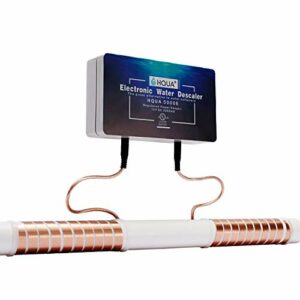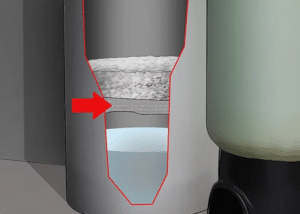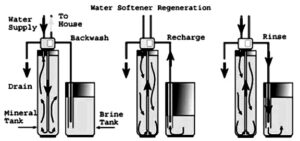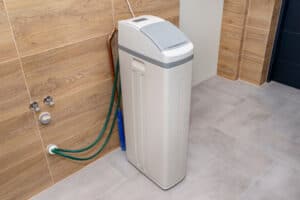Due to the geographic diversity of America, every location varies in its water quality. While some areas have soft water that lacks physical contaminants like calcium and magnesium, other locations have hard water with these minirals. While hard water isn’t dangerous, it is a nuisance that often interferes with cleaning and maintaining a healthy plumbing system.
To combat the effects of hard water, there are two types of “softening” devices: ones that use salt and ones that don’t. When comparing salt-free water softeners vs salt-based systems, which is more effective? Let’s look at the differences, pros, and cons of each.
Salt-Free Water Softener vs. Salt-Based: What’s the Difference?
Both machines make hard water more manageable, but they apply different chemicals, technologies, and techniques.
Salt-based water softeners use salt ions to extract chemicals like calcium and magnesium from your water supply. Over time, the liquid from your tap becomes less cloudy, and there’s a much lower risk of buildup within your pipes. The salt also works to clean the resin bed used to attract the chemicals, making it a mostly self-sustaining machine.
In truth, a salt-free water softener doesn’t soften your water at all. Despite its name, in actuality, it conditions the liquid by altering the chemicals inside it. Without salt, there’s no way to capture calcium, magnesium, and other contaminants. Salt-free systems do not remove these chemicals. They only prevent them from building up and forming scale.
Despite fulfilling the same niche in your home plumbing system, both technologies serve different purposes. Salt-free water softeners vs salt-based machines: how do they work? Let’s take a deeper look at each and their pros and cons.
How Do Salt-Free Water Softeners Work?
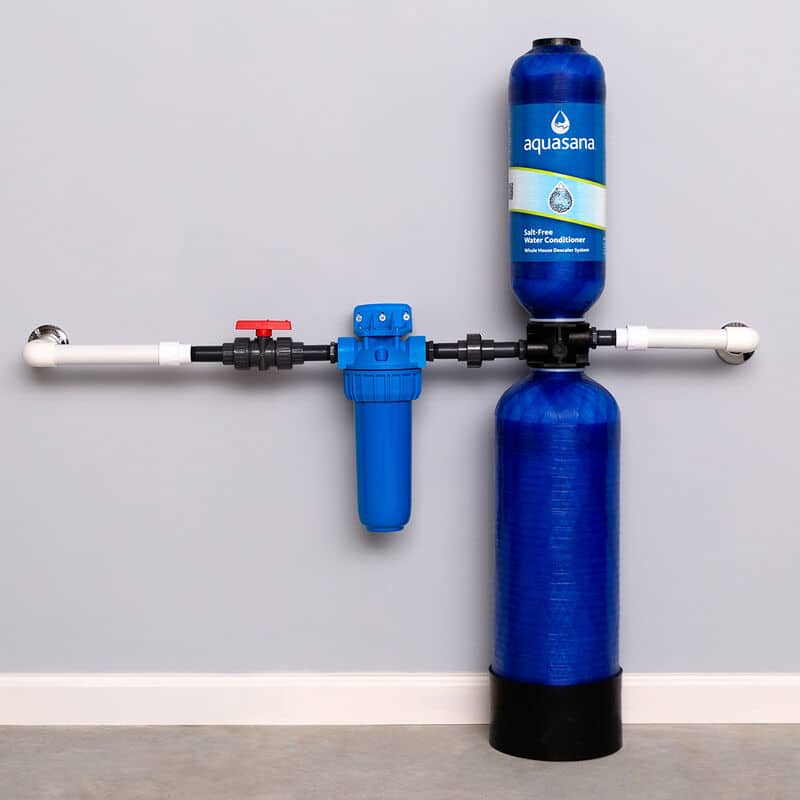
A salt-free water softener system rests near your house’s main water supply. After proper installation, the machine incrementally sends potassium chloride into your water supply from a bag or container attached to the pump. Unlike salt, which attracts and removes physical contaminants from the water, potassium crystalizes the chemicals, preventing buildups.
Note that even though the chemicals crystallize, they aren’t removed from the water at all. Calcium and magnesium aren’t dangerous to consume, but they can still alter the color and clarity of your faucet water. That’s why a salt-free “softener” is truly a conditioner for your pipes. Regardless, the machine does prevent the chalky buildups that can clog and damage pipes.
After purchasing a salt-free water softener, you must continually buy and hook up potassium refills. A large bag typically lasts for about a month in a house where the machine is always running.
Salt-Free Water Softeners: Pros and Cons
There are a handful of benefits and drawbacks to salt-free water softeners.
One advantage the system has over salt-based machines is its low price and low maintenance needs. Since salt-based softeners have resin beds that send out electrically charged ions, they need repairs more often than salt-free systems.
The other advantage is that salt-free systems let you reap the benefits of calcium and magnesium in hard water. Salt-based systems remove these chemicals, but conditioners do not. Calcium improves bone and tooth strength, and magnesium helps your body regulate blood pressure. Furthermore, tap water is one of the best sources of these nutrients.
Salt-free water softeners have a few drawbacks. The first is that the potassium chloride refills are more expensive than the salt refills other machines use. The second is that while you do reap the benefits of the chemicals in hard water, it doesn’t remove the chemicals that can cause physical contamination.
Pros
- Cheap price
- Little maintenance required
- Allows the benefits of water chemicals without pipe damage
- Does not affect the water’s taste
Cons
- Expensive potassium chloride refills
- Water may still look contaminated or cloudy
- Does not truly soften water, despite the name
How Do Salt-Based Water Softeners Work?
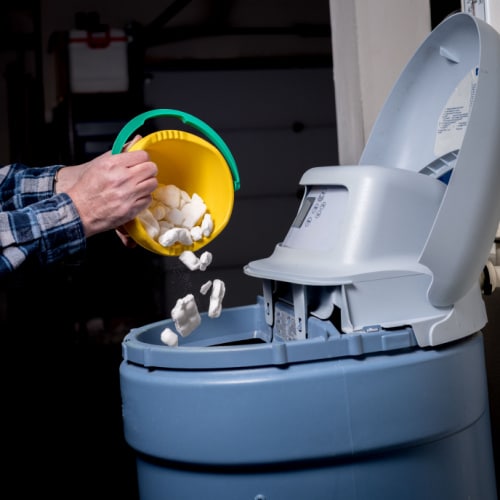
Salt-based water softeners soften the water by removing chemical contaminants. The machine uses an ionized resin bed to draw the calcium and magnesium out of your home water supply. The salt aids in this attraction process and helps the resin bed regenerate and continue working.
Drawing the chemicals out prevents them from precipitating inside your pipes and causing chalky buildups. Eliminating them helps your plumbing system last and keeps your tap flowing well.
Like with salt-free models, if you own a water softener, you must continually refill the sodium chloride packs the machine uses. A standard package lasts about a month. Thankfully, the cost isn’t as high as potassium chloride refills.
Salt-Based Water Softeners: Pros and Cons
Salt-based machines have several advantages over potassium-based ones.
Unlike salt-free conditioners, salt-based softeners do remove the contaminants in the water. As a result, the machines effectively purify water, eliminating cloudiness and potential precipitates inside the pipes. However, in the process, it removes the health-beneficial calcium and magnesium and replaces them with salt, making your tap water slightly salty.
While the installation cost is more expensive, the sodium chloride refills for the softeners are highly affordable. That’s why salt-based water softeners are more sustainable in the long term. However, they require maintenance more often due to the resin bed they use, so be sure to factor in repair costs when using this machine.
Pros
- Fully removes water contaminants to prevent buildups
- Water comes out clear
- Sodium chloride refills are affordable
- Sustainable long-term water softening
Cons
- Higher base price
- May need more frequent repairs
- Water will taste slightly salty
- No health-beneficial minerals in the water
Conclusion
Salt-free water softeners vs salt-based machines: which is better? When you compare the upfront costs, effects, and long-term benefits, there are plenty of reasons to choose either. The most important factors are the cost and the water quality. Consider whether you want mineral-rich water at a low upfront cost or pure water at a high initial expense.
Regardless of which one you pick, both machines eliminate the threat of precipitate buildup in your pipes. Thanks to that, you can evade high plumbing bills and maintain your home’s water supply.

